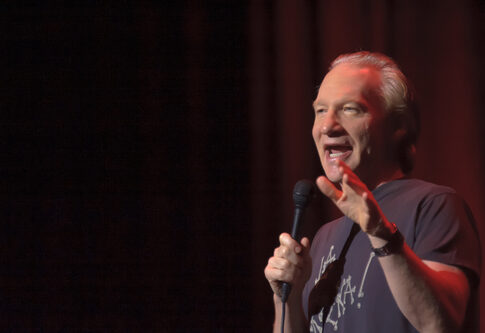In a revealing commentary on CNN, political analyst Scott Jennings has proposed that the backlash against Bill Maher for dining with President Donald Trump represents a calculated strategy to maintain ideological conformity among influential liberals. Jennings’s theory highlights the tensions between personal engagement and political allegiance in America’s polarized climate. How might Larry David’s satirical response impact other liberals considering engagement with Trump?
The Dinner That Sparked Controversy
Bill Maher’s dinner with President Donald Trump has generated significant controversy within liberal circles, leading to what CNN political commentator Scott Jennings describes as enforcement of ideological conformity. The gathering, organized by Kid Rock in late March, was intended to “have a little more civility in this country and try and bring people together” and included UFC CEO Dana White among the attendees.
During the evening, Trump presented Maher with a signed compilation of past insults he had directed at the HBO host, a gesture Maher found surprisingly humorous. “He’s much more self-aware than he lets on in public,” remarked Maher following the dinner, noting that Trump’s private demeanor contrasted sharply with his public persona.
Larry David spoofed Bill Maher‘s glowing review of his White House dinner with Donald Trump with a satirical essay in The New York Times entitled, “My Dinner With Adolf":
"Here I was, prepared to meet Hitler, the one I’d seen and heard — the public Hitler. But this private… pic.twitter.com/7qevaZDq9c
— Variety (@Variety) April 22, 2025
Larry David’s Mocking Response
In the aftermath of the dinner, comedian Larry David penned a satirical piece for the New York Times titled “My Dinner with Hitler,” which many interpreted as a direct rebuke to Maher. Jennings views this response as particularly significant, suggesting it serves as a warning shot to other liberals who might consider engaging with Trump in the future.
“This isn’t about that dinner. It’s about the next one,” Jennings explained during his CNN appearance, framing David’s mockery as a deliberate attempt to discourage similar interactions. “Because this is the modern left. It’s an attempt always to intimidate people into not ever doing it again,” he continued, highlighting what he perceives as a pattern of enforced ideological conformity.
NEW: Bill Maher tells Charlie Kirk he refuses to pretend that having dinner with Donald Trump is a bad thing—no matter what the left thinks.
Maher didn’t hide his past criticisms of Trump—but made it clear that the conversation they shared at the White House was something… pic.twitter.com/5Dj8Lk5JxX
— The Vigilant Fox 🦊 (@VigilantFox) April 20, 2025
The Broader Political Implications
Despite his cordial dinner with Trump, Maher has maintained his critical stance toward the president on his HBO show “Real Time.” The host emphasized that while he found Trump personally engaging during the dinner, stating, “I’m just taking it as a positive that this person exists, because everything I’ve ever not liked about him was, I swear to God, absent – at least on this night,” his political disagreements remain unchanged.
Democratic strategist James Carville has criticized Maher’s positive remarks about Trump as “naïve,” further reinforcing Jennings’ theory about pressure to maintain a united front. For Jennings, who often stands as the conservative voice on CNN panels, the reaction to Maher’s dinner represents a larger concern about political discourse in America, where personal interactions across party lines become increasingly discouraged and even penalized by ideological allies.

